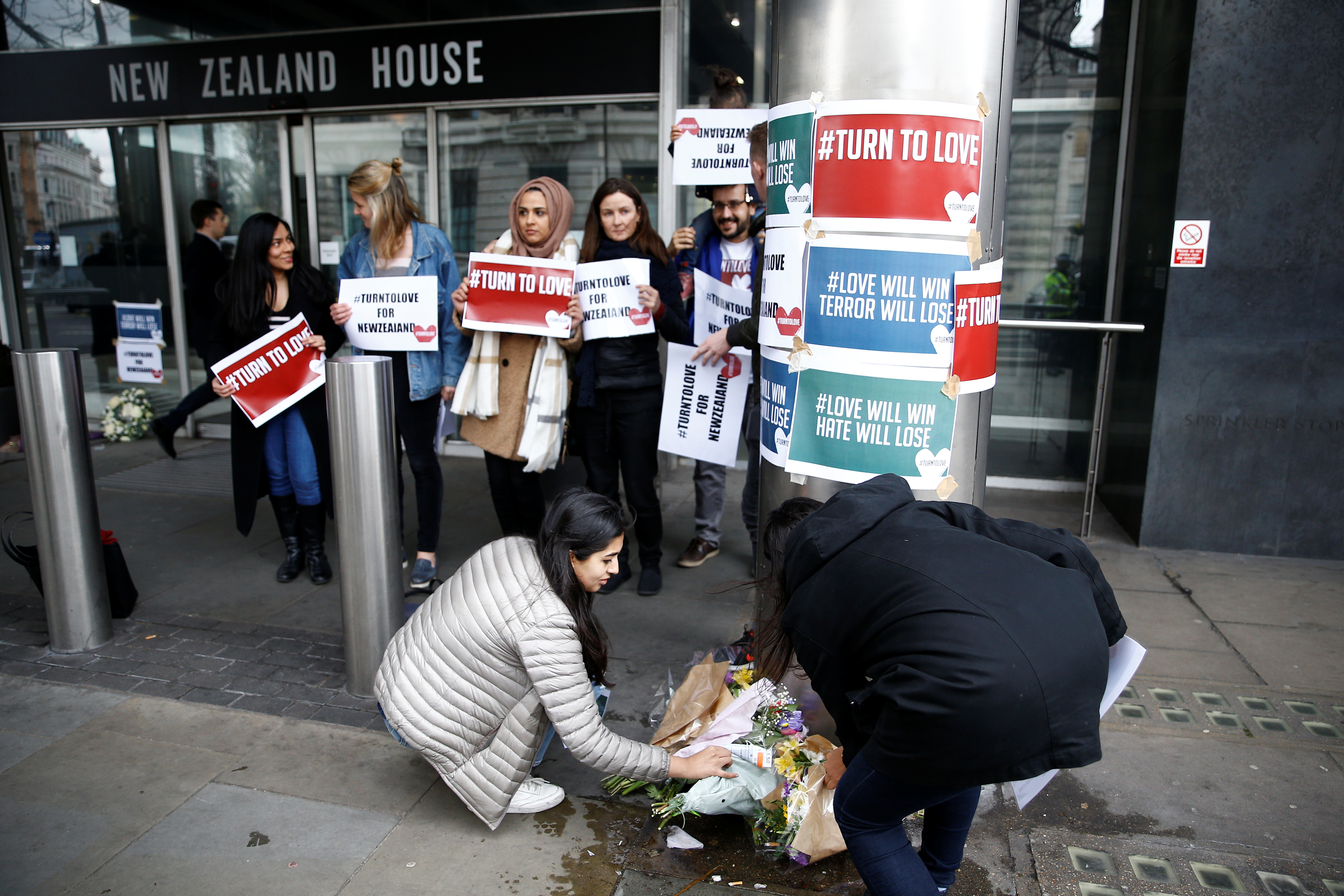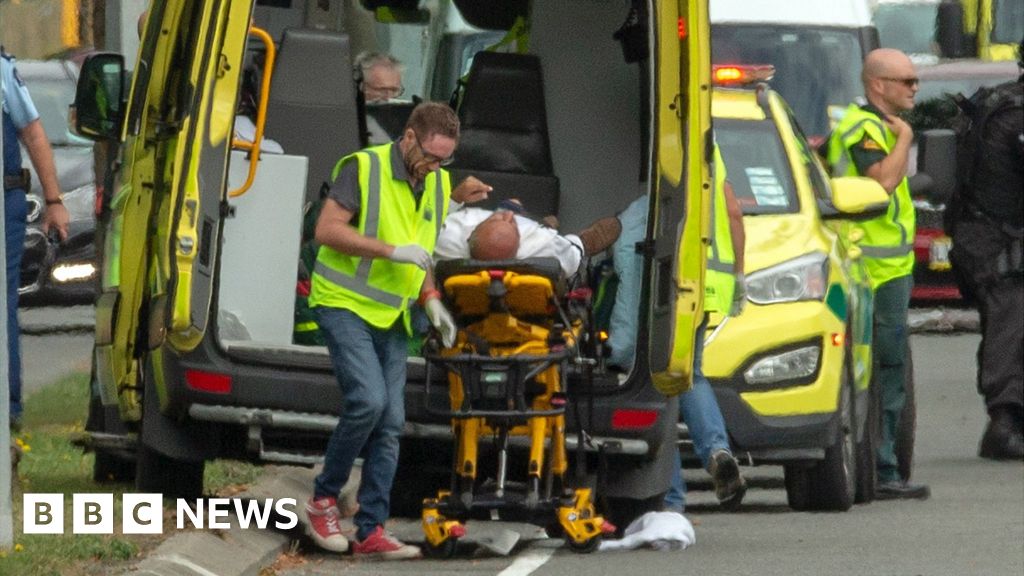

YouTube tweeted Friday morning: "Our hearts are broken over today's terrible tragedy in New Zealand. This image taken from the alleged shooter’s video, which was filmed Friday, March 15, 2019, shows a gun in his vehicle in New Zealand. A search of keywords related to the event, such as "New Zealand," surfaced a long list of videos, many of which were lengthy and uncensored views of the massacre. Many hours later - long after the man and other suspects had been arrested - some internet users still were uploading and re-uploading the video to YouTube and other online services.

The horror began Friday morning in New Zealand, as the alleged shooter used Facebook to live-stream his assault on Al Noor Mosque, one of two Christchurch mosques that he attacked and the scene of most of the 49 fatalities. Over the two days before the shooting he posted about 60 of the same links across different platforms, nearly half of which were to YouTube videos that were still active late Friday. He left behind a social media trail on Twitter and Facebook that amounted to footnotes to his manifesto. "It gives people a much better sense of the event, and the event in real time," London said.īut as much as livestreaming can document, it can also prop up atrocities and make them go viral, as in the case of the New Zealand shooting.The alleged shooter, a heavily armed man authorities have not yet named, also released a 74-page manifesto denouncing Muslims and immigrants that spread widely online. The video went viral, causing national outrage. Perhaps that's why, when Philando Castile was shot by a Minnesota police officer, his girlfriend's first instinct was to start broadcasting live on Facebook. For example, London said that it used to be that when people would accuse police officers of abuse, "you'd have to believe their testimony." Now, livestreaming provides more solid evidence in some cases.

"When your point is to strike fear into the hearts of people, livestreaming allows you to carry your message much farther," London said.īut that same technology and social media access also allow people to call out things like police brutality.

He says the viral nature of social media livestreaming makes it an ideal tool for extremist groups to spread their message. Professor Alex London teaches ethics and philosophy at Carnegie Mellon University.


 0 kommentar(er)
0 kommentar(er)
